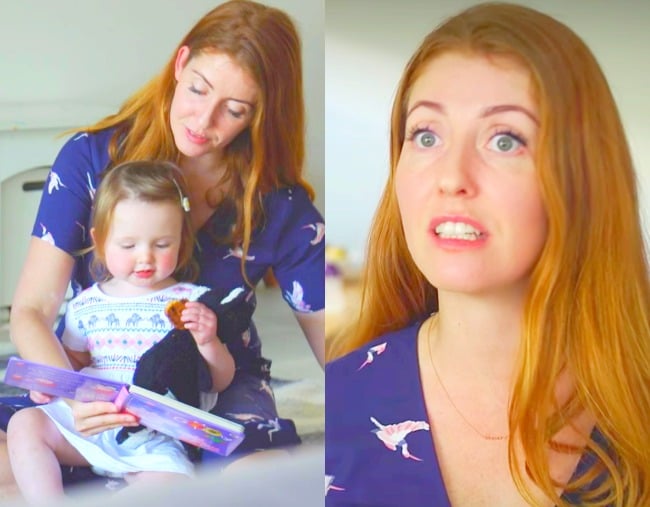
Every woman who’s a mother, or considering becoming one, knows that there are a lot of childbirth choices out there: obstetrician, midwife, hospital, at home. Each option comes with its own pros, cons, and controversies, and this is what SBS’s The Feed aims to examine in Birth Wars, airing Tuesday night.
The segment speaks to several health practitioners and mums, for example, Amy Dawes, who was 33 when she had her first baby in a Sydney public hospital.
Forceps were used as part of the delivery of her healthy baby daughter, but the birth significantly affected Amy both physically and emotionally.
She sustained a third degree tear, and there was trouble controlling the bleeding. Amy later discovered that she had what’s known as a ‘bilateral evulsion’, “where the pelvic floor muscle is torn off the bone.”
Tonight, she admits she wondered: “I was thinking, ‘Is this what death feels like?'”
“I was suffering from faecal incontinence. I need to carry wet wipes, not just for my baby. I’m now 37 and I feel in some ways like I’m 80.”
Amy co-founded the Australasian Birth Trauma Association with Professor Peter Dietz, an urogynecologist specialising in pelvic floor damage because her experience made her question whether women are informed enough about their birth choices and options.
“We’re sort of painted this picture that if we do all the right things, we can have a natural birth and that is the best birth,” she says.

